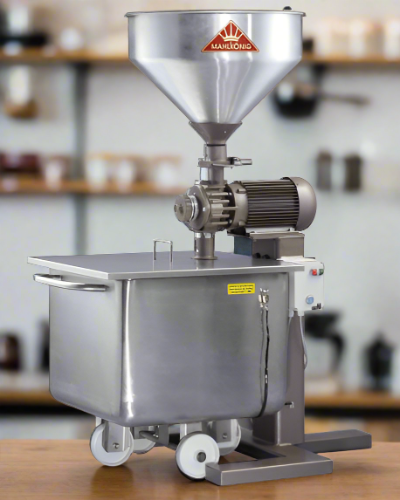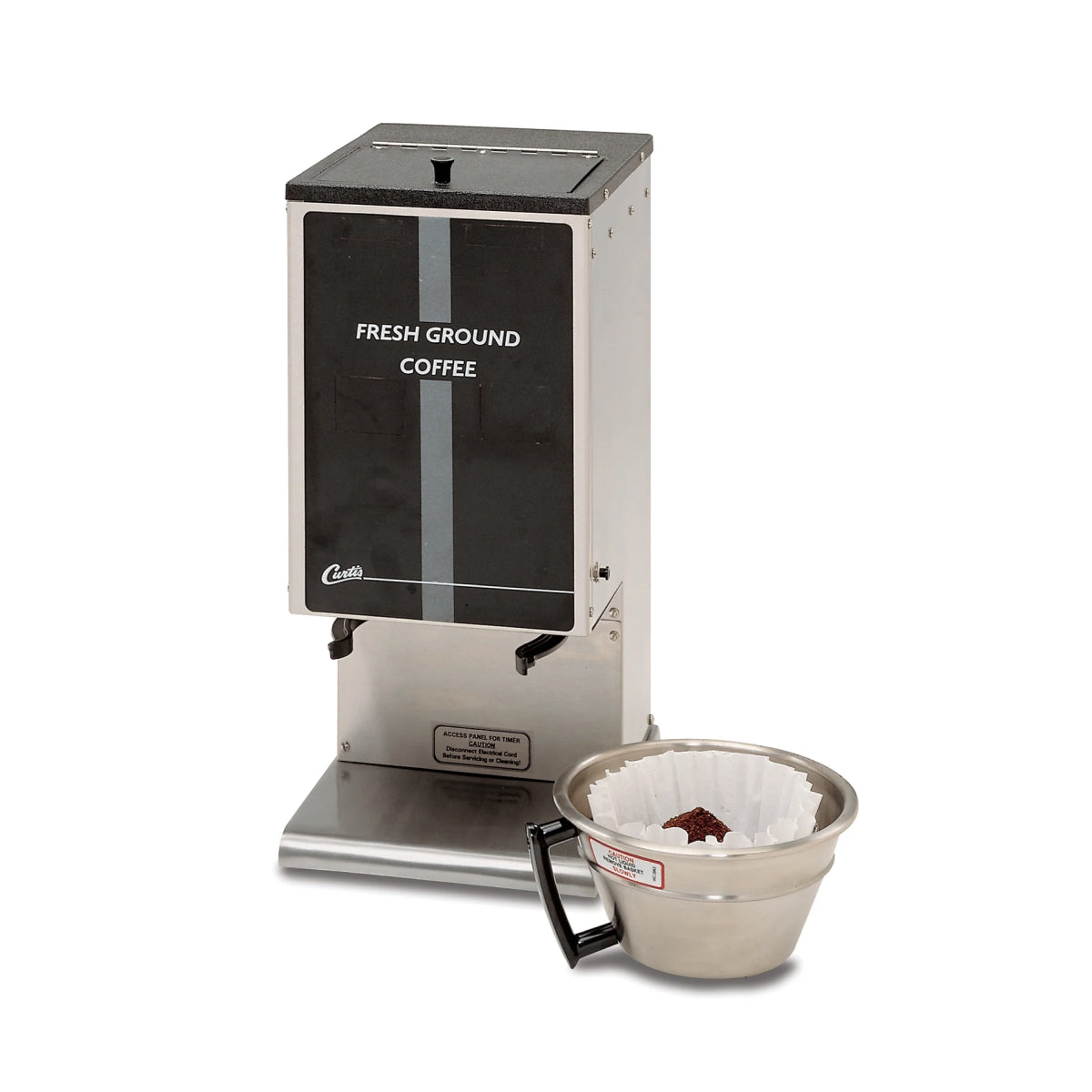Industrial Coffee Grinder: A Full Overview for Bulk Brewing
Industrial Coffee Grinder: A Full Overview for Bulk Brewing
Blog Article
How to Select the Perfect Industrial Coffee Mill for Your Business
Picking the excellent industrial coffee mill for your business is a complex choice that needs cautious consideration of numerous essential factors. Furthermore, understanding the numerous types of grinders readily available can dramatically affect your functional performance.
Assess Your Grinding Demands
When picking a commercial coffee grinder, one should first evaluate their grinding needs to guarantee optimal performance and uniformity. This first assessment entails comprehending the quantity of coffee to be refined daily, in addition to the preferred work dimension for different brewing methods. A high-capacity mill may be essential for companies offering big quantities of coffee, while smaller sized operations could find a much more small version enough.
Furthermore, it is important to think about the sorts of coffee beans being made use of, as various beans may require details grinding techniques to achieve the finest taste account. For example, oily beans might require a mill made to manage such features without clumping or overheating.
Specialty coffee businesses usually require precise grind dimensions to boost removal and flavor, making it important to choose a grinder that can supply consistent outcomes. Reviewing the available area and electrical needs will aid in choosing a grinder that fits flawlessly right into your functional process.
Understand Grinder Kind
Comprehending the different kinds of commercial coffee grinders is critical for making an educated selection that fulfills particular functional demands. There are mostly two groups of mills: blade grinders and burr grinders.
Blade mills utilize rotating blades to cut the coffee beans, resulting in an inconsistent work dimension - Industrial Coffee Grinder. While they might be a lot more economical, they are commonly not suitable for commercial applications where accuracy is important
On the other hand, burr grinders supply a more uniform grind by crushing the beans between 2 surfaces. They can be additional classified right into level burr and cone-shaped burr grinders. Flat burr grinders offer a consistent work size and are usually favored for espresso preparation, while conical burr mills are flexible and can handle a variety of brew techniques, from coffee to French press.
When selecting a grinder, consider the certain demands of your service, consisting of desired work uniformity, production volume, and the kinds of coffee beverages you plan to offer - Industrial Coffee Grinder. Each mill type has its advantages and restrictions, so recognizing these nuances makes it possible for informed decision-making that lines up with operational objectives
Evaluate Work Dimension Uniformity
Accomplishing work size uniformity is crucial for creating high-quality coffee, as variants in bit dimension can significantly impact extraction and flavor. When selecting a commercial coffee mill, it is crucial to review just how well the equipment keeps harmony in work size across different batches. Inconsistent work dimensions can result in uneven extraction, leading to a mug that might taste overly bitter or weak.
To evaluate work additional reading dimension uniformity, take into consideration mills with attributes such as flexible grind setups and high-quality burrs. Burr grinders, in certain, master producing consistent particle dimensions contrasted to blade mills. The material and shape of the burrs play a crucial role, with stainless steel and ceramic options offering durability and accuracy.

Think About Manufacturing Capacity
In the busy globe of coffee manufacturing, taking into consideration manufacturing capability is paramount for organizations aiming to satisfy demand without sacrificing quality. The manufacturing capability of a commercial coffee mill straight influences a firm's capability to accomplish orders successfully, manage stock, and respond to rising and fall market trends.
When analyzing manufacturing capacity, it is important to assess the mill's output price, normally determined in pounds per hour. This measurement needs to line up with your organization's projected sales quantity and development targets. For example, a coffee shop with a high turn over may need a mill that can refine numerous hundred extra pounds daily, while a smaller sized procedure may suffice with a reduced ability design.
In addition, take into consideration the sort of coffee being refined. Different beans and blends might affect grinding rate and performance, requiring over at this website a grinder efficient in dealing with diverse production demands. It's also worth considering the mill's capability to preserve constant top quality under high result problems, as any kind of fluctuations can influence the end product.
Eventually, selecting a grinder that matches your business's manufacturing ability will certainly ensure you continue to be receptive and affordable to consumer assumptions.

Budget and Maintenance Variables
When examining the right industrial coffee maintenance, spending plan and mill elements play a substantial function in the general decision-making process. A preliminary investment in a top quality mill can produce long-lasting advantages, however it's crucial to develop a clear budget that aligns with your service's functional needs. Think about both the acquisition rate and possible functional costs, such as energy intake and replacement parts.
Upkeep is an additional essential aspect that can affect your spending plan. Industrial coffee grinders call for regular upkeep to make sure ideal efficiency and durability. Examine the producer's referrals for maintenance, consisting of cleansing timetables and components substitute, as these will certainly affect long-term functional prices. Furthermore, take into consideration the accessibility of solution and support, as reliable help can reduce downtime and repair service expenses.

Investing in a grinder that is durable yet very easy to maintain can conserve money gradually. While lower-priced options may be appealing, they may sustain higher upkeep prices and reduced efficiency. Ultimately, stabilizing first prices with lasting maintenance and operational performance will certainly guide you to the most effective option for your service's coffee grinding needs.
Conclusion
Choosing the suitable commercial coffee grinder demands a thorough assessment of grinding requirements, grinder kinds, grind size uniformity, production capacity, and budgetary considerations. A well-chosen mill not only improves the quality of the coffee generated however likewise adds to the general success and profitability of the business.
Specialty coffee organizations usually require precise grind dimensions to enhance removal and flavor, making it essential to choose a grinder that can provide consistent outcomes. Apartment burr mills offer a consistent grind size and are generally favored for coffee preparation, while conelike burr mills are functional and can handle a variety of brew approaches, from espresso to French press.
When picking a commercial coffee mill, it is important to assess exactly how well the equipment preserves harmony in grind dimension throughout different sets. Burr grinders, in specific, stand out in creating uniform fragment dimensions that site compared to blade mills.Choosing the suitable industrial coffee mill demands a complete evaluation of grinding requirements, grinder kinds, grind dimension uniformity, manufacturing capability, and financial considerations.
Report this page